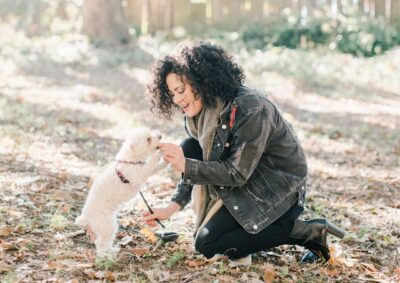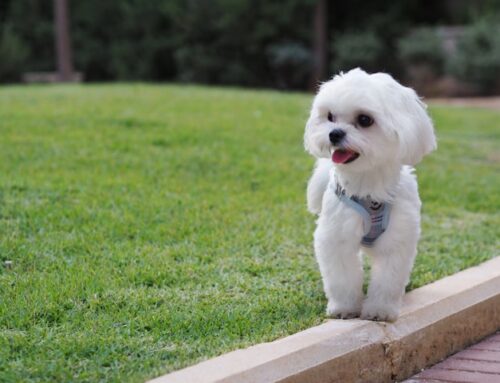Overview
Introduction to Shih Tzu Temperament

Shih Tzus, beloved for their charming demeanor and affectionate nature, are among the most popular dog breeds worldwide.
As devoted companions, these small but sturdy dogs have captured the hearts of countless dog owners. In this guide, we delve deep into the Shih Tzu temperament, exploring the traits that make them such delightful pets.
Whether you’re a seasoned Shih Tzu owner or considering bringing a Shih Tzu puppy into your home, understanding their temperament is key to building a fulfilling relationship with these delightful canines.
Overview of the Shih Tzu breed
The Shih Tzu breed is a beloved dog breed known for its friendly and affectionate nature, making them wonderful companions for individuals and families alike.
Recognized by the American Kennel Club, Shih Tzu dogs are characterized by their distinctive appearance, with a flowing coat and a charming, expressive face. Shih Tzu owners often praise their dog’s playful yet gentle demeanor, along with their adaptability to various living situations, from apartments to larger homes.
Despite their small size and light weight, Shih Tzu dogs have a long, flowing coat that requires regular grooming to keep them looking their best, especially in cold weather. As toy breeds, Shih Tzus are well-suited for indoor living and can thrive in apartment settings. Understanding these aspects of Shih Tzu temperament can help you provide the best care for your furry friend.

Importance of understanding Shih Tzu Personality and Temperament
Understanding the temperament of dogs, such as Shih Tzus, is crucial for responsible pet ownership. It allows prospective owners to choose a breed that aligns with their lifestyle and preferences, ensuring a harmonious relationship.
Additionally, comprehending a dog’s temperament aids in training and socialization, leading to a well-behaved and happy pet.
For breeds like Shih Tzus, known as companion dogs, understanding their personality traits can enhance the bond between owner and pet, fostering a loving and fulfilling companionship.
Understanding these aspects of Shih Tzu temperament can help you build a strong and lasting bond with your furry companion.
Origin and Brief History of Shih Tzu
The name “Shih Tzu” translates to “lion dog” in Chinese, which is fitting given their lion-like appearance, courage, and association with Chinese royalty. These dogs were treasured as companions and were often given as gifts to emperors and nobility. Their role as companion animals is emphasized by their classification in the toy group by the American Kennel Club (AKC).
Shih Tzus have a long and rich history, with origins dating back to ancient China, where they were bred as early as 8000 BC. They were cherished for their loyalty, affectionate nature, and ability to provide companionship.
Today, Shih Tzus continue to be beloved pets, known for their charming personalities and beautiful, flowing coats that require regular grooming to keep them looking their best.
Understanding these aspects of Shih Tzu temperament can help you appreciate their rich history and the special bond they share with their owners. Shih Tzus typically have a lifespan of 10 to 16 years, ensuring many years of companionship and joy with their families.

Breed Characteristics of the Shih Tzu
Physical attributes
The Shih Tzu is a dog breed known for its distinctive appearance, characterized by a luxurious double coat that requires regular grooming.
According to the American Kennel Club, the breed’s coat is long, flowing, and comes in various colors. Shih Tzus are often considered hypoallergenic dogs, making them a popular choice for people with allergies.
The Shih Tzu’s coat is a defining feature, requiring regular maintenance to keep it healthy and tangle-free. Shih Tzus have a sturdy body, a short muzzle, large dark eyes, and a distinct underbite, giving them a unique and charming expression. Their double coat can also contribute to their body heat regulation, making them adaptable to both cold and warm weather.
Despite their small size, Shih Tzus weigh between 9 to 16 pounds. These physical attributes contribute to the breed’s popularity as a companion dog, known for its friendly nature and regal appearance. While Shih Tzus are low-shedding dogs, their double coat requires regular grooming to prevent matting and maintain a healthy appearance, including regular haircuts.
Behavioral traits
The Shih Tzu’s friendly and affectionate personality makes them excellent companion dogs, often forming strong bonds with their owners. Despite their small size, they are not high-energy breeds and are usually content with moderate exercise, such as short walks or indoor play sessions.
However, Shih Tzus can be stubborn at times, which can pose challenges in training. Consistent and patient training methods, along with positive reinforcement, are key to overcoming this stubbornness and ensuring they remain well-behaved.
Providing mental stimulation, such as interactive toys and games, can also help keep them engaged and prevent boredom, leading to a happier and more well-adjusted pet.
Understanding these aspects of Shih Tzu temperament can help you provide the right environment and training for a harmonious relationship with your furry friend.

The Shih Tzu Personality Traits
Affectionate nature
The Shih Tzu’s affectionate nature is evident from puppyhood, as they are known for seeking out companionship and forming strong bonds with their owners.
Their loving disposition makes them ideal house pets, as they thrive on human interaction and enjoy being part of the family.
Shih Tzus have a unique ability to bond deeply with their pet parents, often displaying loyalty and emotional intuition.
Many people are drawn to Shih Tzus for these qualities, as they enrich the lives of those around them with their affectionate nature and unwavering devotion. This strong bond between Shih Tzus and their owners is often a source of joy and companionship for both parties, making them cherished members of the family.

Playful demeanor
Shih Tzus are known for their playful and sociable nature, which makes them well-suited for households with other dogs or pets.
Their small size and friendly demeanor allow them to interact easily with other animals, often forming positive relationships and engaging in playful activities. Their playful nature is not only charming but also contributes to their popularity among dog breeds.
Shih Tzus’ eagerness to engage in play and interact with other dogs and pets is a testament to their sociable and friendly disposition, making them delightful companions for families and individuals alike. Understanding these aspects of Shih Tzu temperament can help you provide a fulfilling environment for your furry friend.
Gentle disposition
Shih Tzus are known for their gentle disposition, particularly towards other dogs and animals. Their friendly nature and small size make them less intimidating to other animals, reducing the likelihood of aggression. This gentle demeanor is a key characteristic of the breed and contributes to their popularity as a companion breed among dog lovers.
Their playful and affectionate traits also play a significant role in their popularity. Shih Tzus’ ability to interact peacefully with other animals, coupled with their loving nature, makes them ideal companions for families and individuals seeking a friendly and sociable pet.
Overall, their gentle disposition and friendly nature make them beloved pets and cherished members of many households.

Shih Tzu Temperament Development
Puppyhood: Birth to 1 year
Temperament development in Shih Tzus, as in many dog breeds, is crucial during puppyhood, which typically spans from birth to around one year of age.
This period is a critical time for Shih Tzu puppies as they begin to develop their personalities and behavior traits that will shape them as adult dogs.
Pet parents play a vital role in this process by providing proper socialization, training, and care. Socialization involves exposing the puppies to a variety of people, animals, environments, and experiences in a positive and safe manner.
This helps them become well-rounded and adaptable dogs, less likely to develop fears or aggression towards unfamiliar stimuli.
Training is also essential during this time to establish good behavior patterns and teach basic commands. Consistent and positive reinforcement-based training methods are effective for Shih Tzus, as they respond well to rewards and praise.
Since Shih Tzus are small dogs, they tend to mature faster than larger breeds. This means that early experiences and training have a significant impact on shaping their temperament. It’s important for pet parents to start socialization and training early and continue throughout the dog’s life to ensure they grow up to be well-behaved and well-adjusted adult dogs.

Adolescence: 1 to 2 years
Adolescence, which usually occurs between 1 to 2 years of age in Shih Tzus, is a crucial stage of development where they continue to refine their personalities and behaviors.
This period is often characterized by increased independence and a desire to test boundaries, which is common among many dog breeds.
During adolescence, Shih Tzu owners may notice changes in their dog’s behavior, such as increased stubbornness or a tendency to challenge commands.
It’s important for owners to remain patient and consistent with training during this time, as this can help shape their dog’s temperament positively.
Consistent training and socialization are key during adolescence to help Shih Tzus mature into well-behaved and affectionate companions. Positive reinforcement-based training methods can be particularly effective in guiding them through this stage and reinforcing desired behaviors.
Despite the challenges that may arise during adolescence, with proper guidance and training, Shih Tzus can mature into well-adjusted and loving pets. Owners who provide their Shih Tzus with the necessary support and guidance during this stage can help ensure a strong bond and a harmonious relationship as their dog transitions into adulthood.

Adulthood: 2 to 10 years
During adulthood, which spans from 2 to 10 years of age, Shih Tzus typically exhibit a more settled temperament compared to their puppy and adolescent stages.
They have likely established their personality traits and behavior patterns by this point, and they are known to be affectionate and loyal companions.
Adult Shih Tzus often display a calm demeanor and enjoy the company of their pet parents. They are well-suited for apartment living due to their small size and low exercise requirements.
Despite their small stature, they are often described as sturdy and resilient, able to adapt to various living situations.
As adult dogs, Shih Tzus are known for their loving nature and are often sought after as companions for pet owners looking for a loving and low-maintenance breed. They thrive on human companionship and are known to form strong bonds with their owners, providing years of loyal and devoted companionship.

Senior years: 10+ years
In the senior years, typically 10 years and older, the temperament of a Shih Tzu tends to stabilize and reflect a more settled demeanor.
As they age, Shih Tzus often become more relaxed and less energetic, preferring to spend their time lounging and enjoying the company of their family.
Despite their age, Shih Tzus maintain their affectionate nature and may become even more loyal and attached to their owners. They seek comfort and companionship in their senior years, often preferring to be close to their loved ones.
This deepening bond between Shih Tzus and their owners is a testament to their loving and devoted nature, making them cherished companions throughout their lives.

Socialization and Shih Tzu Temperament
Importance of early socialization
Early socialization is crucial for shaping the temperament of Shih Tzus, as it helps them become well-rounded and adaptable dogs. Many Shih Tzus are naturally friendly and sociable, often greeting new experiences with a wagging tail.
Exposing them to various people, animals, and environments from a young age can help ensure they grow up to be confident and outgoing companions.
Tips for socializing your Shih Tzu
When socializing your Shih Tzu, introduce them to a variety of experiences, including meeting other pets and friendly dogs. Encourage positive interactions and praise them for calm behavior.
Allow your Shih Tzu to interact with different people, including children, under supervision. Expose them to different environments to help them become confident and well-adjusted pets.

Shih Tzus with Children and Other Pets
Interaction with children
Shih Tzus can be wonderful companions for children, especially when raised together from a young age. Their small size makes them suitable for families with limited space, and they often get along well with other pets, particularly if they are socialized early.
When introducing a Shih Tzu to children, it’s important to teach both the dog and the children how to interact gently and respectfully. Supervision is crucial, especially with young children, to ensure that playtime remains safe and enjoyable for everyone.
Compatibility with other pets
Shih Tzus are generally friendly and can get along well with other pets, especially if they are introduced at a young age. Their small size makes them less intimidating to larger animals, and their playful nature can make them good companions for other dogs.
However, it’s important to monitor interactions between Shih Tzus and other pets, especially during the initial introduction period, to ensure that everyone is comfortable and safe. Proper socialization and training can help promote positive relationships between Shih Tzus and other pets in the household.

Training Your Shih Tzu’s Temperament
Basic obedience training
Basic obedience training is essential for shaping your Shih Tzu’s temperament and behavior, especially when it comes to issues like excessive barking. Start training your Shih Tzu from a young age to establish good habits early on.
When introducing a new pet to your Shih Tzu, use positive reinforcement techniques to encourage good behavior and prevent any potential conflicts. With patience and consistency, you can help your Shih Tzu develop into a well-behaved and balanced companion.

Positive reinforcement techniques
Positive reinforcement techniques, such as using treats, praise, and toys, are highly effective for training your Shih Tzu’s temperament. When your Shih Tzu exhibits desirable behavior, reward them immediately to reinforce that behavior.
Consistency is key; be sure to reward good behavior every time it occurs. Positive reinforcement helps build a strong bond between you and your Shih Tzu while encouraging them to repeat the behavior in the future.
Common Behavior Issues in Shih Tzus
Separation anxiety
Shih Tzus are known for their affectionate nature, which can sometimes lead to separation anxiety when they are left alone. This behavior issue can manifest as excessive barking, destructive chewing, or attempts to escape.
To help alleviate separation anxiety, gradually accustom your Shih Tzu to being alone for short periods, provide plenty of toys and mental stimulation, and consider using calming aids or seeking advice from a professional trainer or behaviorist.
Understanding these aspects of Shih Tzu temperament can help you address separation anxiety and ensure your pet’s well-being when left alone.

Excessive barking
Excessive barking is a common behavior issue in Shih Tzus, often stemming from their alert and vocal nature. To address this, identify the triggers that cause your Shih Tzu to bark excessively, such as boredom, loneliness, or attention-seeking behavior.
Provide plenty of exercise, mental stimulation, and attention to help keep them occupied and reduce barking. Consistent training and positive reinforcement can also be effective in teaching your Shih Tzu when barking is appropriate.
Understanding these aspects of Shih Tzu temperament can help you manage their barking behavior effectively.
Housetraining challenges
Housetraining challenges can be common in Shih Tzus, especially in puppies. Due to their small size, they may have difficulty holding their bladder for long periods.
Consistent and patient training, including establishing a regular schedule for feeding and potty breaks, can help address these challenges. Using positive reinforcement, such as treats and praise, when they eliminate outside can also encourage good habits.
Understanding these aspects of Shih Tzu temperament can help you effectively train your puppy and establish a routine that works for both of you.

Managing Aggression in Shih Tzus
Understanding the Causes of Aggression
Understanding the causes of aggression in Shih Tzus is crucial for pet owners to address this behavior. Aggression can stem from fear, territorial instincts, or feeling threatened.
Sometimes, Shih Tzus may display aggression towards other friendly dogs due to a lack of socialization or past negative experiences. It’s important for pet owners to observe their Shih Tzu’s behavior carefully and seek professional guidance to manage and correct aggressive tendencies.
Understanding these aspects of Shih Tzu temperament can help you address any aggressive behavior in a proactive and compassionate manner.
Tips for addressing aggression
When addressing aggression in Shih Tzus or any dog breed, it’s important to first identify the underlying cause. Proper socialization from a young age can help prevent aggression towards other breeds or dogs.
Training and positive reinforcement techniques can also be effective in managing aggression, along with providing a calm and stable environment. Consulting with a professional trainer or behaviorist can provide personalized strategies to address aggression in your Shih Tzu based on their age, breed, and specific behavior.
Understanding these aspects of Shih Tzu temperament can help you address any behavioral issues in a constructive and compassionate manner.

Caring for Your Shih Tzu’s Emotional Well-being
Providing mental stimulation
Providing mental stimulation is essential for maintaining your Shih Tzu’s emotional well-being. Engage your dog mentally with interactive toys, puzzle feeders, and training sessions to keep their mind active and prevent boredom.
Regular playtime and walks in new environments can also stimulate their senses and prevent them from becoming restless or anxious. Understanding these aspects of Shih Tzu temperament can help you provide the mental enrichment needed for a happy and healthy companion.
Creating a safe and comfortable environment
Creating a safe and comfortable environment is crucial for your Shih Tzu’s emotional well-being. Provide a cozy bed, toys, and a designated area where they can retreat and feel secure. Keep the environment calm and free from loud noises or stressful situations.
Spending quality time with your Shih Tzu, offering gentle affection, and maintaining a consistent routine can also help them feel safe and emotionally balanced.
Understanding these aspects of Shih Tzu temperament can help you create a nurturing environment that promotes their overall happiness and well-being.

Recognizing Signs of a Happy Shih Tzu
Playfulness and curiosity
A happy Shih Tzu is often characterized by their playfulness and curiosity. They may eagerly explore their surroundings, play with toys, and engage in interactive activities.
A wagging tail, bright eyes, and an alert posture are signs that your Shih Tzu is content and enjoying their environment. Encouraging play and providing stimulating toys can further enhance their happiness and well-being.
Understanding these aspects of Shih Tzu temperament can help you create a joyful and enriching environment for your furry companion.
Relaxed body language
A happy Shih Tzu is often characterized by their playfulness and curiosity. They may eagerly explore their surroundings, play with toys, and engage in interactive activities.
A wagging tail, bright eyes, and an alert posture are signs that your Shih Tzu is content and enjoying their environment. Encouraging play and providing stimulating toys can further enhance their happiness and well-being.
Understanding these aspects of Shih Tzu temperament can help you create a joyful and enriching environment for your furry companion.
Strong bond with the owner
A happy Shih Tzu often forms a strong bond with their owner, seeking out their company and showing affection. They may follow their owner around the house, eagerly greet them, and enjoy being petted and cuddled.
A strong bond with the owner is a sign that the Shih Tzu feels loved, secure, and happy in their environment. Understanding these aspects of Shih Tzu temperament can help owners provide the care and attention these loving dogs need to thrive.
Summary Shih Tzu Temperament
Shih Tzus are beloved for their charming demeanor and affectionate nature, making them popular companions worldwide. Their playful yet gentle temperament, adaptability to various living situations, and distinctive appearance contribute to their appeal as pets.
Understanding the Shih Tzu’s personality traits, such as their affectionate nature, playfulness, and gentle disposition, is essential for building a fulfilling relationship with these delightful canines. Shih Tzu temperament is characterized by their friendly and outgoing nature, making them excellent family pets and companions.
Recap of key points about Shih Tzu Temperament
- Shih Tzus are friendly and affectionate dogs, known for their playful yet gentle demeanor.
- They are adaptable to various living situations and are well-suited for apartment living.
- Shih Tzus have a distinctive appearance, with a luxurious double coat that requires regular grooming.
- Proper socialization, training, and mental stimulation are crucial for shaping their temperament and behavior.
- With a lifespan of 10 to 16 years, Shih Tzus can provide many years of companionship and joy to their families.
Importance of nurturing a positive temperament in your dog
Nurturing a positive Shih Tzu temperament is essential for their overall well-being and happiness. Providing mental stimulation, creating a safe and comfortable environment, and understanding their needs and behaviors are key aspects of responsible pet ownership.
By fostering a positive temperament in your Shih Tzu, you can strengthen the bond between you and your pet, leading to a fulfilling companionship for both of you.
By fostering a positive temperament in your Shih Tzu, you can strengthen the bond between you and your pet, leading to a fulfilling companionship for both of you. Explore our delightful selection of Shih Tzu puppies for sale in Georgia and surrounding areas. Each furry friend is raised with love and care to become a cherished addition to your family.
Frequently Asked Questions (FAQs): Shih Tzu Temperament
- Are Shih Tzus good with children?
- Shih Tzus are known to be good with children, especially when they are properly trained and socialized from a young age. They are gentle and affectionate, making them wonderful pets for families.
- Do Shih Tzus tolerate hot weather?
- Due to their long coat, Shih Tzus may have difficulty tolerating hot weather. It’s important to provide them with plenty of shade, water, and avoid strenuous activities in hot weather.
- Are Shih Tzus low maintenance dogs?
- While Shih Tzus have a long coat that requires regular brushing to prevent matting, they are generally considered low maintenance in terms of exercise needs and grooming compared to some other breeds.
- How many puppies do Shih Tzus usually have?
- Shih Tzus typically have small litters, with an average of 3 to 5 puppies. However, the number can vary depending on the individual dog and other factors.
- Are Shih Tzus good apartment dogs?
- Yes, Shih Tzus are well-suited for apartment living due to their small size and low exercise requirements. However, they still need daily walks and indoor playtime to stay happy and healthy.
- What health issues are common in Shih Tzus?
- Some common health issues in Shih Tzus include hip dysplasia, which can affect their mobility, and problems with their facial hair, which may require regular grooming to prevent irritation.
- Do Shih Tzus need interactive toys?
- Yes, interactive toys can help keep Shih Tzus mentally stimulated and prevent boredom, which can lead to behavioral issues.
- What training methods are best for Shih Tzus?
- Positive reinforcement methods, such as rewards and praise, are usually the most effective for training Shih Tzus. They respond well to gentle, consistent training.
- Are Shih Tzus good for agility training?
- Shih Tzus may not be the best breed for agility training due to their small size and delicate build. However, they can still enjoy light agility exercises with proper supervision.
- How can I find a reputable breeder for a Shih Tzu?
- It’s important to do thorough research and ask for references when looking for a reputable breeder. Responsible breeders prioritize the health and well-being of their dogs and can provide documentation of health screenings and pedigrees.
- What is the typical Shih Tzu personality?
- Shih Tzus are known for their friendly and outgoing personalities. They are affectionate dogs that often form strong bonds with their owners. They can also be lively and playful, enjoying interactive playtime.




